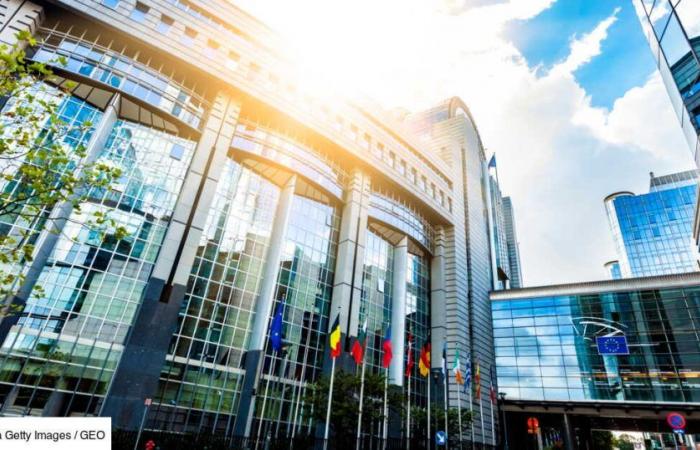False green claims, fanciful labels, dubious climate reports: EU states agreed on Monday on a text banning “greenwashing“ labels and advertisements, via systematic verification, including carbon emissions compensation.
Towards environmental transparency
Under the aegis of Hungary, which will take over the rotating presidency of the Council of the EU in July, the Twenty-Seven will now have to enter into talks with the European Parliament to finalize the legislation. MEPs voted their own position in mid-March.
The EU already adopted a text at the end of February banning so-called environmental claims “generics”deemed misleading (“green product”, “100% natural”…). The legislative project on which the European Ministers of the Environment, meeting in Luxembourg, voted on Monday, aims to be more ambitious by eliminating all environmental assertions not supported by factual bases.
The rest under this advertisement
Nature takes its time…
like this ad!
Nature takes its time…
like this ad!
T-shirt or packaging “made from recycled plastic”, “CO2 neutral delivery”, “biodegradable”, “ocean-friendly sunscreen“… these formulas intended to attract the eco-responsible consumer must be verified beforehand, with “clear criteria” framed in terms of recyclability, sustainability, etc.
Fight greenwashing
The text provides that ecological claims must be justified by recent and scientifically recognized data, identifying all impacts. Environmental certification systems, subject to the same criteria, should be transparent and regularly reviewed“Ecolabel” official designed by the EU would be exempt.
Finally, companies should have the validity of the allegations verified by “independent auditors” accredited, under penalty of sanctions.
The rest under this advertisement
Nature takes its time…
like this ad!
States support the introduction of a “simplified procedure” for certain types of allegations and ask that micro-enterprises, also covered, have an additional 8 months to comply with the new rules, according to a press release from the Council of the EU.
“Several support measures have been added to help SMEs throughout the procedure”with guidelines, training, and even financial support, particularly with a view to “reduce the administrative burden for farmers”he continues.
Increased verification of labels
States wish to be able to exempt green label systems already existing at national or regional level from third-party verification obligations “provided they comply with EU standards”and do not exclude the possibility of creating new labels.
The text also attacks the offsetting of carbon emissions, which often amounts to planting trees or buying back CO2 credits, practices considered ineffective compared to the direct reduction of emissions. States plan to require companies that use them to detail these carbon credits and the total emissions thus offset.
The rest under this advertisement
Nature takes its time…
like this ad!
Nature takes its time…
like this ad!
Of 150 green claims (packaging, advertising) examined by Brussels in 2020, 53% contained “ambiguous, misleading or unfounded information” : textiles, cosmetics, household appliances… no sector was spared. And half of the approximately 230 “ecological labels” Europeans were granted with verifications “weak or non-existent”.
” All rights of reproduction and representation reserved. ©2024 Agence France-Presse. All information (text, photo, video, fixed or animated infographics, sound or multimedia content) reproduced on this page is protected by current legislation on intellectual property rights. Consequently, any reproduction, representation, modification, translation, commercial exploitation or reuse in any manner whatsoever is prohibited without the prior written consent of AFP, with the exception of personal non-commercial use. The AFP cannot be held responsible for delays, errors, omissions which cannot be excluded in the field of press information, nor for the consequences of actions or transactions carried out on the basis of this information. AFP and its logo are registered trademarks »






